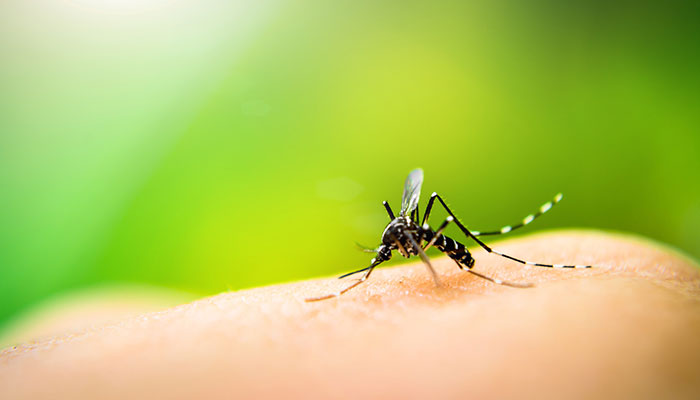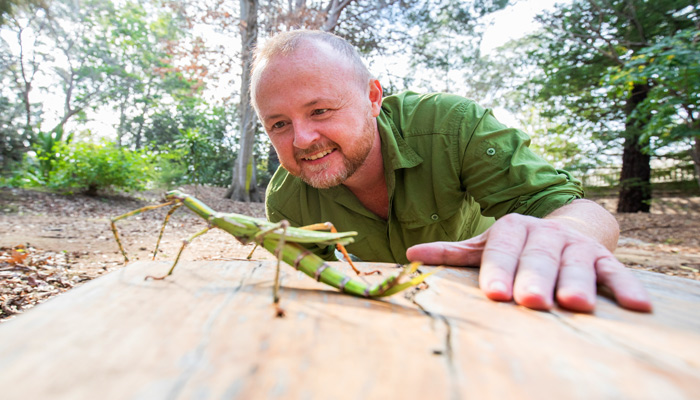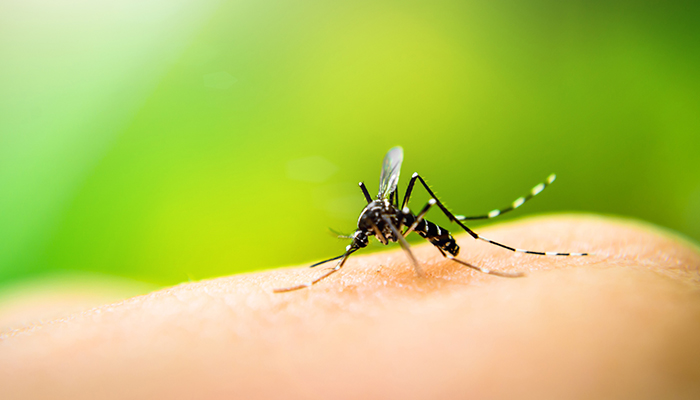It has taken decades of research, but scientists are close to working out why mosquitoes bite some people, and not others. It comes down to a complex trifecta of carbon dioxide, body temperature and body odour that makes some people more inviting to mozzies than others.
Mosquitoes first use carbon dioxide (CO2) to track their quarry, much like I use my well-honed sense of smell to track down a freshly baked apple pie. CO2 is emitted by its mammalian blood donor, which mosquitoes can detect from up to 50 metres away. They fly upstream using the shift in concentration of CO2 along this stream to orient themselves.
Subsequently people that emit higher levels of CO2 are more attractive from a distance such as those that are exercising or others that have a higher resting metabolism, such as larger individuals.
In general, this means men are more likely to attract mozzies than women, children are less susceptible than adults, and full-figured individuals including pregnant women are more attractive than their slimmer counterparts.
One study found that the mosquitoes responsible for spreading malaria are attracted to Limburger cheese, a stinky European variety.
This last point underlines the fact that your appeal to mosquitoes can be transient – people can lose weight, pregnant women have their babies, and people trade the treadmill in for watching TV on the couch.
The detection of CO2 is not just important for orientation; it has been shown that its presence is necessary to trigger the other senses for refining the search.
- VIDEO: Rising whale numbers a bonus for Sydney citizen scientists
- It's official: tough economic times ahead
As mozzies get closer, thermal detectors that can clock temperature differences of around 2.5 degrees kick in and if the target is not at the right temperature, they won’t land. Anything over 40 degrees is getting too hot, but normal human body temperature is just right.
The final stage is related to body odour which is where it starts to get complex – but super cool.
The stinky cheese connection
It has been known for some time that mosquitoes are attracted to certain scents and that different species of mosquitoes vary in their preferences. For example, one study found that the mosquitoes responsible for spreading malaria are attracted to Limburger cheese, a stinky European variety.
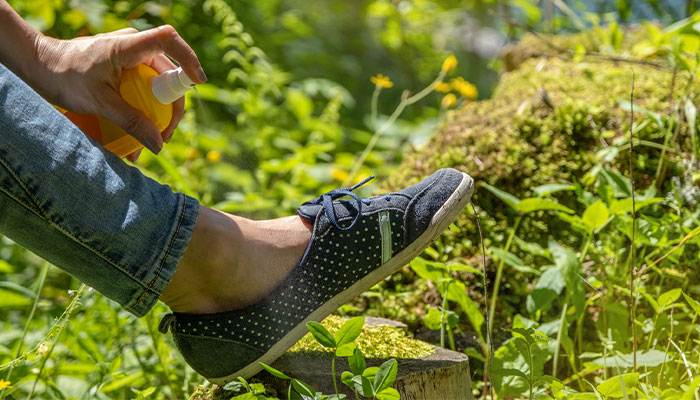
Spray away: Mosquitoes that are attracted to the stinky Limburger cheese are also partial to the human foot, one study found.
This cheese is cultured with the same bacteria that is responsible for human foot odour. Interestingly, this mosquito genus is more likely to bite humans around the feet and ankles.
Other species of mosquitoes that are attracted to other parts of the body, such as the neck or the shoulders, were not attracted to this cheese at all. This study alone highlights that mosquitoes are attuned to particular smells.
In more recent times scientists have focused more on the recipes required for the characteristic body odour of humans and have since found that mosquitoes cannot get enough of fatty acids – yum yum.
The acid trip
It’s estimated every centimetre of human skin contains about 1 million bacteria, and the sum of this bacteria is referred to as our skin’s microflora. Although having so much bacteria on your skin may seem urky it’s completely normal and indeed, we inherit much of this bacterial profile from our mothers during birth.
These bacteria are also helpful in that they break down waste products that our glands secrete onto our skin, such as ammonia, lactic acid, lipids and amino acids.
This process produces volatile (gaseous) fatty acids - the elixir of mosquitoes it seems.
At the same time, other bacteria on our skin suppress the production of these acids, and it is the byplay between the bacteria that produce the acids and the bacteria that suppress their production that creates a body odour profile that is unique to each individual human – and of varying appeal to mosquitoes.
Scientists have found that people who have a higher abundance but a lower diversity of bacteria on their skin, are more susceptible to mozzies than people with a lower abundance and higher diversity. What this actually means is still uncertain, but it possibly means a lower diversity means you have a higher number of bacteria that are breaking down waste products and creating the acidic aromas that the mozzies are tuning in on.
Many weapons for a tiny enemy
In 2018, an extensive survey of mosquito repellents used by people around the world turned up 167 strategies, from sonic repellers, hairspray and Windex to nets, garlic pills, vitamin B patches and even burning animal dung.

Safety net: Humans have deployed their ingenuity against mosquitoes, coming up with remedies including hairspray, garlic pills and nets.
The sheer number of traditional and home remedies across cultures shows the energy and ingenuity humans have directed towards warding off these tiny creatures that are at best annoying, and at worst lethal.
The link to Vitamin B is a particularly enduring theory – the web is littered with suggestions of Vitamin B patches or tablets, or eating Vitamin B-rich foods such as Marmite or Vegemite – but there has now been many research studies that have shown Vitamin B has no effect, so please people, let this theory go.
Despite the breadth of remedies, sure-fire protection really only comes from:
- Applying specifically designed mosquito repellent to your skin;
- Covering up the areas mozzies love to bite;
- Avoiding favoured mozzie hangouts such as wetlands, especially during dusk;
- Potentially avoiding friends that smell-like Limburger cheese (this may or may not be a World Health Organisation recommendation).
But seriously, remember it only takes one bite from one mosquito to potentially contract a disease, so protecting yourself is crucial – regardless of how much mosquitoes love or avoid you.
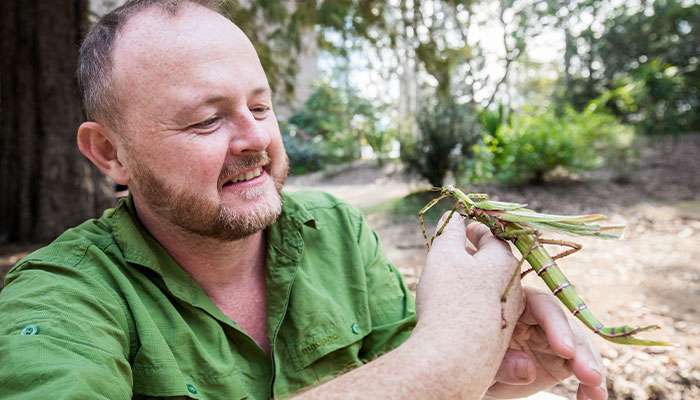
Matthew Bulbert is an Honorary Senior Lecturer in the Department of Biological Sciences

